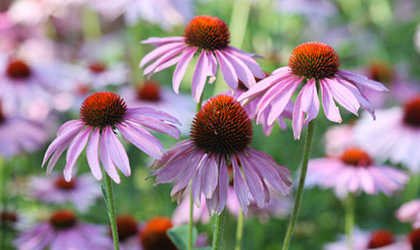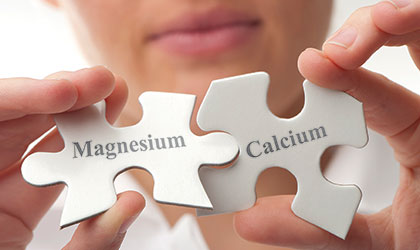
As you grow older, you’ll notice a number of changes in your body — including your immune system. You might find yourself picking up the common cold a little easier, and finding it harder to recover from when you do. But while this can be a bit of a niusance, there are some steps you can take to bolster your immunity from the inside — namely through lifestyle and nutrition. To give you a little more insight into this area, we’ve compiled a list of the essential nutrients to boost your immune system as you age.
Immunity and ageing
Ageing can cause your immune system to slow down a little. A study claims this is a result of increased fat in the bone marrow where immune cells are formed, thus limiting their production and increasing the risk of inflammation.i Changes in the immune system may mean that sickness is more common so taking steps to help support the body’s defences is an important consideration in ageing. Our advice? Exercise regularly, get quality sleep, eat a healthy diet, reduce stress levels and wash your hands, still remain true and goes a long way to immune competence at any time of life. But the current landscape for ageing is changing, there are nutrients with a plethora of research behind them now which might also be valuable in supporting the immune system as we age.
Essential nutrients to boost your immune system as you age
Live Bacteria
It is widely accepted that 70-80% of the body’s immune defences are hosted in the gut. In the event this delicately balanced environment of bacteria becomes disturbed, by illness or stress for example, our resistance to illness may be compromised. Including live bacteria by way of a high potency, supplementation is a great way to support these ‘good’ gut boosters.
Anthocyanidins
An active area of research and investigation is the importance of anthocyanidins in ageing skin. When collagen and elastin production decline with age the dermis will start to lose its elasticity and become thinner. These blue and red pigments found in fruits, berries and vegetables; red cabbage, aubergine and blueberries to name a few, are compounds known to protect and preserve the body’s natural collagen. The most abundant protein in the body, collagen is an important component in bones, teeth, cartilage, skin and blood vessels. We know that all of these areas are in need of support in advancing age, so including a healthy portion of these on a daily basis is a great way to age well.
Vitamin D
Doing the things you love for as long as possible moves to the top of the list as you grow older. It could be that the key to healthy ageing is to focus on supporting the immune system, as some studies suggest it’s this mechanism that mitigates the effects ageing has on our body.ii As white blood cells (our immune system defense mechanism) are produced in our bone marrow, it’s important to support their wellbeing. Enter vitamin D, renowned for its reputation in connection to bone health. Our main source of vitamin D is made by exposing the skin to sunlight, although, in the drizzly winter months, supplementation is a great option when catching rays is easier said than done.
Ageing can be a wonderful time to pick up a new hobby and spend welcome time with loved ones — so don’t let your immune system stop you! For even more information on common health conditions that may affect you as you age, feel free to visit our health library or have a further look around our blog.
References:
-
Nihgov. (2018). PubMed Central (PMC). Available online: https://www.ncbi.nlm.nih.gov/pmc/articles/PMC5785902/ [Accessed: 1 April 2019.]
-
Causes, consequences, and reversal of immune system aging. NCBI Resources. 2013.. Available online: https://www.ncbi.nlm.nih.gov/pmc/articles/PMC3582124 [Accessed 13 May 2019.]
You Might Also Like

Keri
Keri Filtness has worked in the Nutrition Industry for 19 years. She is regularly called upon for her professional comments on health and nutrition related news. Her opinions have been featured by BBC3, Prima, Vitality, The Mirror, Woman’s Own and Cycling Weekly, amongst others. She has also worked one to one with journalists, analysing their diets and health concerns and recommending changes and additions, where appropriate.
View More



